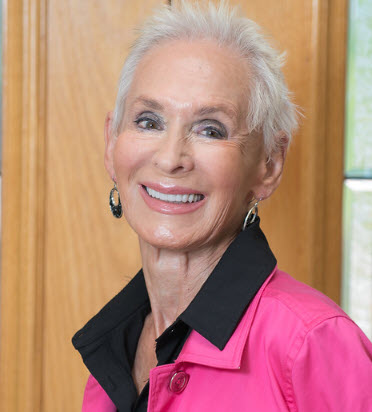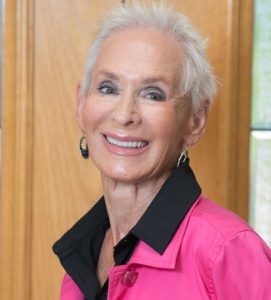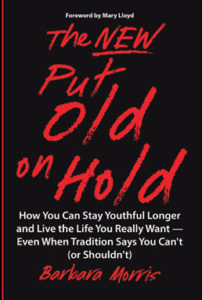

During the Depression of the 1930s, an Irving Berlin tune with the lyrics “Everybody’s doin’ it, doin’ it, doin’ it” was popular. I don’t know what everybody was doin,’ but it had a happy sound that made you feel better about tough times.
Fast-forward to the present and the lyrics are still relevant: Everybody’s doin’ it, doin’ it, doin,’ it, and what are they doin’? They are retiring beginning with the oldest of today’s 76 million Boomers and that figure will swell to 69.4 million in 2030.
When Social Security went into effect, no one could envision the many ways government-sponsored retirement would affect future generations. Given lack of savings, increased cost of living, and the relative pittance from Social Security, Boomers are not sure they can afford to retire. And Gen-Xers are not happy having to support Boomers approaching retirement, paying for their Medicare and Social Security.
In the past century, the American lifespan has increased 27 years. In his book, Age Power, Ken Dychtwald, Ph.D., says, “Retirement is a relatively new and experimental life state that was initially envisioned to last three to five years, not 20 or 30.” He cautioned that the current retirement model is not realistic for the future.
The future is now and Dr. Dychtwald is right: the current retirement model is not realistic. A joint study by Washington and Cornell Universities concludes that 64 percent of retirees depend on Social Security for half or more of their income; 29 percent rely on it for 90 percent of their income; 18 percent rely on it for all their income. Researchers also say that by age 75, nearly a quarter of those elders will have experienced poverty, and the percentage rises as one ages.
Poverty Is The Pits
Poverty in retirement is not just a statistic; it’s a grim reality. As a pharmacist in a supermarket pharmacy, I dealt with retirees every day and what I saw, experienced, and was told, confirmed they were not living in a land of plenty. With unlimited time on their hands, they cruised the aisles, hunched over their shopping carts, carefully looking for the best deals of the day. What they invariably choose were inexpensive, low-nutrition but filling edibles – macaroni and cheese, processed meals in a box, processed cereal products, high fat processed meat products, and loaves of white bread. When higher quality pet food was on sale they bought a treat for their beloved Bowser, or was it for the retiree’s dinner? Whatever they could find in the day-old section of the bakery and produce departments was a plus. Would they buy a bottle of inexpensive multi-vitamins? On a tight budget, supplements were a luxury, and besides, the doctor said they are a waste of money if you eat a well balanced diet. They were sure they ate a well balanced diet. I forgot to mention — regardless of whatever else they purchased, a bottle of Jack Daniels and a couple of bottle of wine were a “must”.
As for medication, retirees often waited until the Social Security check arrived. Cutting tablets in half or in quarters to make them last longer was common. Medications prescribed for daily dosing were taken every other day or a couple of times a week.
Financial stress in retirement plagues the more affluent as well. Let’s use pharmacists burned out by long hours on their feet and demanding work conditions as an example. They are eager to give it up. Like most would-be retirees, they think they have everything in order: savings and 401K, Social Security benefits, and the traditional pre-retirement mindset: “I don’t need as much anymore so I’m going to cut back and do without .”
Real World Reality
Shortly after retirement, there is an abrupt discovery that more of everything is needed, not less: more medication, more medical and costly diagnostic procedures not covered by insurance and more money for prevention and maintenance. Then, more disillusionment: there is finally time for travel and more entertainment but the budget doesn’t always allow it. Accustomed to pre-retirement unbridled spending and now having to think twice about expenses, resentment moves in as an unwelcome guest and refuses to leave.
Given the reality of less than adequate income in retirement, are attitudes changing about whether or not to give up the daily grind? Yes, and no.
For many, full-time retirement as a life goal is slowly losing its appeal. Nevertheless, tradition, custom, business, and political interests continue to promote retirement as the preferred lifestyle at age sixty-five or before.
Retirement may be an entitlement, but it can have serious psychological ramifications. Consider that it is closure on a lifetime of effort into which you poured your heart and soul. In the excitement of starting a new phase of life that promises freedom and leisure, few people think, except perhaps for a fleeting maudlin moment, about possible undesirable consequences of closing the door on the past.
Prescription for Depression
The last day on the job, you are a ”somebody” — a manager, a doctor, lawyer, secretary, or whatever. The next day, your life of contribution is over. You are a retired “has been,” a person now referred to as “didn’t s/he used to be . . .” All of a sudden, what you’ve been most of your life has lost its meaning, not for you or your family, but in the eyes of the world. This overwhelming loss of self is a prescription for the onset of depression, and many retirees are severely depressed. However, the condition is often misdiagnosed or glossed over as, “you’re getting on in years and you have to expect these things.”
What you can do instead
Everybody has the right to a personal lifestyle choice. But many people retire simply because it’s the expected thing to do. They don’t think about an alternative to retirement, and they don’t give a thought to how they will fill time or in what circumstances they will live during a longer lifespan.
Age 70 and beyond can be some of the most productive years of your life. Instead of incarceration in a nursing home or living a regimented life in a senior facility, you can use your accumulated knowledge and wisdom to fuel a new career and new life. Working for others or having your own business can ensure a more youthful lifestyle that will keep you healthy, growing, energized and connected. As a bonus, rather than being financially dependent on the government, friends, neighbors, or your children who have responsibilities of their own, you will have freedom and power traditionally enjoyed only by the young. You will feel like the cat that ate the canary, enjoyed every little morsel, and is looking for the next appetizing opportunity. In short, you will still be moving forward.
The prevailing attitude about aging is that you will get old and decrepit in spite of what you do to try to prevent it, so why even think about a new career after sixty-five. To put current beliefs about aging into perspective, recall a time in history when the most respected scientific minds in the universe decreed the earth was flat, and everyone believed it until someone with vision and determination sailed off into the horizon and did not fall into a black, bottomless abyss.
Rules for “the good life” after sixty-five
You may be thinking it sounds great, but what goes into actually creating an unprecedented new beginning when traditionally, you should be hitting the skids? Here are some simple rules that work if you put them to work:
- Health is your most important possession. To get it and keep it, early on, educate yourself about nutrition, dietary supplements and healthy lifestyle choices. If you have been less than kind to yourself over the years, your body can be incredibly forgiving when you start treating it right.
- Believe it’s possible to control decline associated with aging. Just as the earth is not flat, decline is not inevitable.
- Visualize your future and commit to making it happen. Doors will open and opportunities will appear that will lead you to your goal.
- Engage in rigorous mental management. Stop negative self-talk (“I’m too old to do that,” “I’m having a senior moment”) and do not indulge in self-deprecating remarks about your age, abilities or circumstances. Filter out disparaging comments of others. Frequent negative messages inhibit personal growth and prevent the formation of new ideas for your future.
- A hallmark of oldness is fear of change and inability to accept new ideas. Associate with younger people to see life through fresh, adventurous eyes.
- Monitor how you are changing over time and work to hold on to youthful attributes such as good posture and mental and physical strength and flexibility.
- We learn to get old by listening to and observing old people, so critically think about how they shape your attitudes about aging. Deliberately disconnect from any influences that promote decline.
You can choose to live in a state of vibrant, seamless, evolutionary growth. Enjoy the thrill of cheating Father Time out of at least 20 years by getting to 60, 70 and beyond and feeling and functioning like a healthy 40 or 50 year old. It’s an incredible payoff for valuing yourself and your life. Be in that growing number of happy, healthy, productive older people who are doin’ it: bypassing traditional leisure oriented retirement and reveling in a healthy, productive fulfilling second life. The rewards are just too outstanding to pass up.

I’m 25 days behind reading this, but want to wish you a Merry Christmas and a great New Year. Ann
Barbara, how fun to see you are still doing what you do best (and so am I). Congratulations on the second iteration of your book!
Reading your newsletter confirms what I’m doing for myself (now 76 and feeling at least 20 years younger). Following in your footsteps, renaming age and retaining vitality.
I’m working on a new book and think it would be fun to include a short piece about you and your work.
It’s called:
Discover the Super Power of Big Girl Panties, the Official Playbook for Getting a Leg Up in Life
Part self-help, part memoir, part stories of kick butt women I know and admire, plus parts that are hilarious.
Lemme know what you think! -Leslie